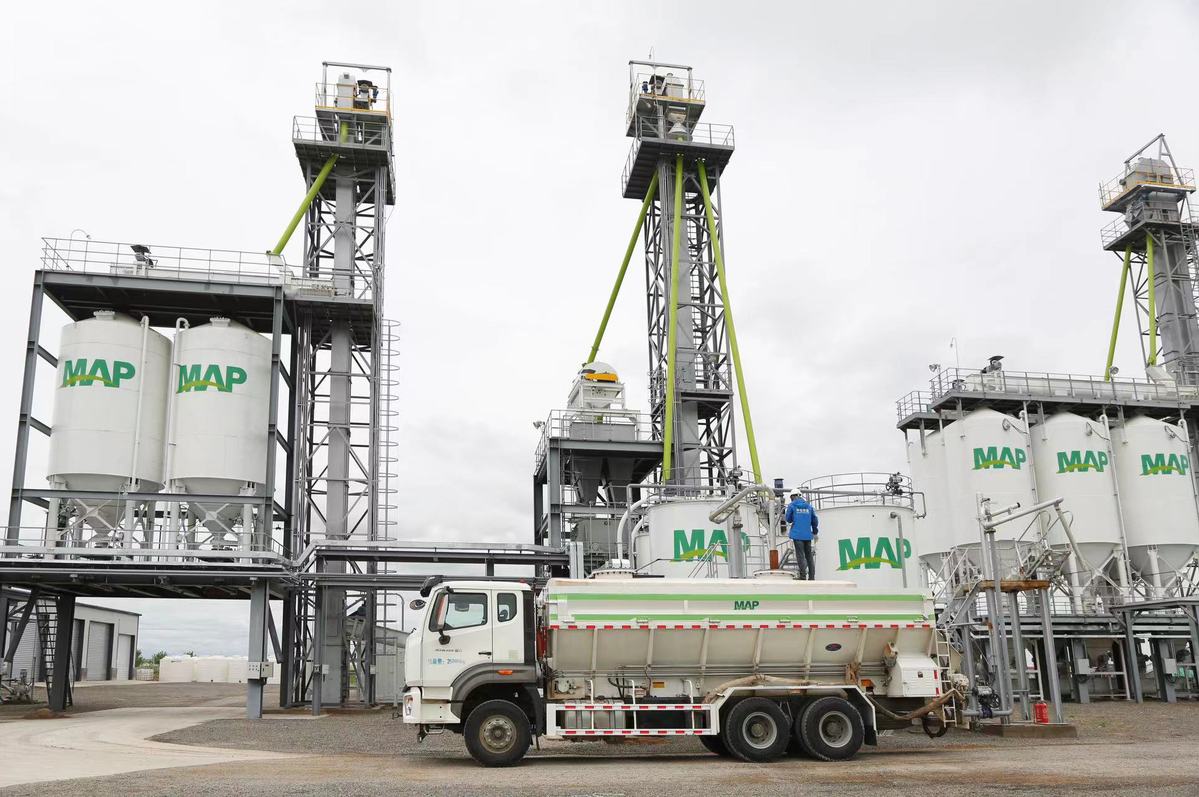Syngenta to enhance biodiversity, soil health in China via tailor-made programs

An employee of Syngenta Group China works at one of the company's Modern Agriculture Platform service centers in Ar Horqin Banner, Inner Mongolia autonomous region, in September 2021. [Photo provided to chinadaily.com.cn]
Syngenta Group China, one of the four major business units of Syngenta Group - the global seeds, crop protection and nutrition product manufacturer, will enhance biodiversity and soil health across China via its tailor-made programs in the coming years, said its executives.
As the company is currently building a research and development facility in China with the goal of running it as one of group's key global innovation centers, the firm said one of its main tasks will be focusing on soil health and biologics to improve the condition of the nation's soil through biotechnology.
According to the 2022 "No 1 central document," China will develop 6.67 million hectares of high-standard farmland, promote national projects on black soil protection, and launch the third nationwide soil condition census, as per the Ministry of Agriculture and Rural Affairs.
Jiang Yekui, chief sustainable officer of Syngenta Group China, said it is vital to introduce the systematic solutions to help improve soil health level across the country, because a large number of products, such as biological organic fertilizer and slow-release fertilizer, are being used in the China.
Since China has between 300 and 400 million mu (20 and 26.67 million hectares) of saline-alkali land, the application of soil conditioner can help the country better improve the farming condition of these land. It will be significant to increase the country's grain output and ensure its food security, he said.
To facilitate its moves, Syngenta Group China has developed the Modern Agriculture Platform to provide customized solutions, from sowing to harvesting. It also offers free services to farmers, such as remote sensing inspections of land, accurate weather data and warnings about plant diseases and pests.
Based on the company's MAP 2021 Green Development Report, released in mid-March, the average Agricultural Green Development Index score of MAP farmers in 2021 is 43.13, which is 53.43 percent higher than that of non-MAP farmers.
A total of 1.95 million farmers have registered with MAP to date. The program provides smart farming services in 900,000 farms, covering 29 provinces and autonomous regions, according to its corporate data.
With China striving to achieve peak carbon emissions by 2030 and carbon neutrality by 2060, Qin Hengde, president of Syngenta Group China, said the company will continue to take MAP service and digitization as the key measure to upgrade and transform the development of traditional agriculture.


